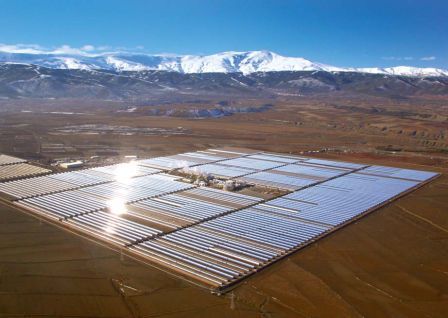
23 May The Spanish government loses first ICSID arbitration claim over retroactive measures against Solar Thermal Electricity (STE) plants
Brussels, 23 May 2017 – The retroactive measures taken against STE[1] plants by the Spanish government in 2012 – 2013 and consolidated in 2014 resulting in a massive change of the remuneration scheme for RES[2] power plants have now been unanimously condemned by ICSID, the International Center for the Settlement of Investment Disputes[3]. Among the 26 arbitration claims against these changes filed at the ICSID by several RES industries, the case of the STE industry (20 claims) stands out since these measures brought the deployment of STE to a stop in Europe and still negatively impact the business development of European companies holding worldwide technology leadership in STE technology.
Well known is that right after the STE plants were built, the revenue streams of plant operators were suddenly cut by a third(!).
Less known is that ahead of these cuts, the solar thermal sector had reached an official agreement with the Spanish government so as to keep a stable remuneration for previously constructed or awarded plants. By this agreement, the STE sector accepted delaying both the operation start of the plants and the remuneration regime “pool + premium” by one year compared to the initially authorized schedule. This resulted in savings for the Spanish system of around 1.4 billion € already between 2011 and 2013. While the STE sector scrupulously fulfilled its commitments (and effectively refrained from a 1.4 billion € income), the Spanish government did not comply with its obligations.
The main argument used by the Spanish government to defend the changes was that “entrepreneurs should have known that laws can be changed”. Indeed, all entrepreneurs knew and still know it, but the ICSID now arbitrated that such massive sudden changes of agreed rules may not occur in whatever way. The Spanish Ministry recently said in a press release regarding the arbitration award of ICSID that each arbitration is “different”. No doubt about that. However, the common denominator of further arbitration awards about the solar thermal sector (with still some 20 pending cases) will lie now in two undisputable facts: a) the abrupt retroactivity of the measures taken and b) the obvious breach by the Spanish government of an agreement with an industry sector. In addition, the assessment of the damages performed in this first ICSID sentence shows that the current remuneration scheme that was set to provide a “reasonable profitability” on investments of 7.4% is a fiction that even the experts presented by the Ministry recognized.
The Spanish government might now take this arbitration award as a good opportunity to consider whether it makes sense to wait for an expected “string” of negative awards due to the fact that most of the still-pending cases are from the STE sector or to be proactive and negotiate with both international investors and the STE industry an acceptable settlement solution.
Recent reports in major Spanish media mention that the Spanish Ministry is now likely to lobby the EU institutions for avoiding the payment of the ICSID sentence (128 M€) via a) declaring its own RE support schemes as a breach to EU State-Aid rules and b) stating that the Energy Treaty Chart would not apply within EU Member States. Furthermore, ESTELA also observes obvious hesitations from the Spanish Ministry of Energy to support and even spearhead a “STE initiative for Europe” worked out with the SET-Plan framework aiming at defending the STE technology leadership position held by companies in about 10 EU Member States – amid fears that non-European competitors might easily take advantage of a longer STE investment stop in Europe. ESTELA will carefully monitor and report such developments.
[1] STE: Solar Thermal Electricity – also known as Concentrating Solar Power (CSP)
[2] RES: Renewable Energy Sources
[3] ARB/13/36: Eiser Infrastructure Limited and Energía Solar Luxembourg S.à r.l.
Download Press Release in PDF



